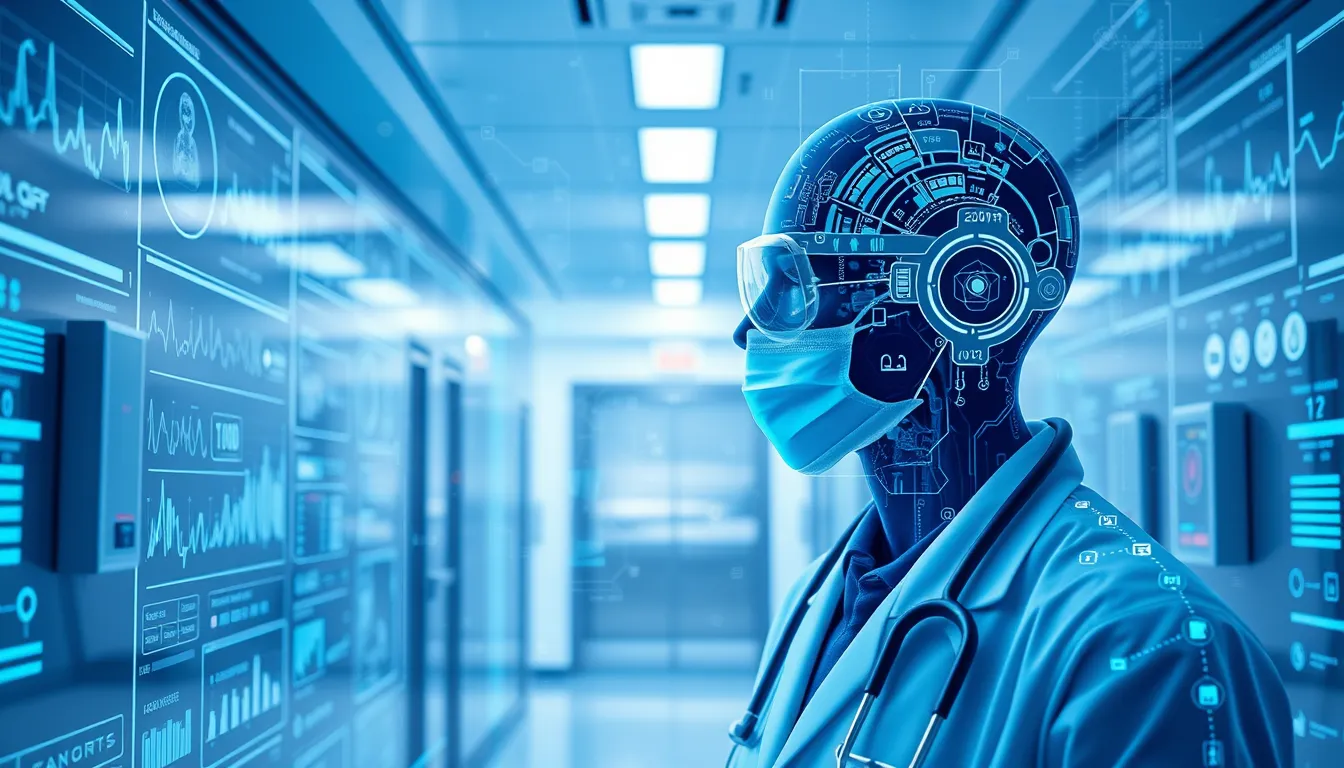Now Reading: Transforming Care: Microsoft AI Healthcare Diagnostics
-
01
Transforming Care: Microsoft AI Healthcare Diagnostics
Transforming Care: Microsoft AI Healthcare Diagnostics

Transforming Care: Microsoft AI Healthcare Diagnostics
Microsoft has recently announced a breakthrough in healthcare technology, introducing an advanced system that is poised to redefine patient care. This revolutionary development in Microsoft AI healthcare not only enhances diagnostic accuracy but also integrates sophisticated deep learning techniques to analyze complex medical data. Built on a foundation of extensive medical datasets, the system aims to empower healthcare professionals with state-of-the-art tools.
Overview of the Technology
The new system leverages advanced AI diagnostics powered by deep learning in healthcare to sift through patient records, imaging scans, and other clinical data. By doing so, it identifies subtle patterns that might be overlooked by traditional methods. Microsoft claims that this technology has the potential to significantly reduce misdiagnoses and streamline the diagnostic process, particularly in complex clinical scenarios.
The integration of AI in medicine is a major step forward, enhancing the capacity for quick and accurate medical data analysis. Microsoft AI healthcare is designed to support, not replace, the expertise of healthcare professionals. As the healthcare industry increasingly relies on technology, innovations like these are becoming essential in delivering efficient, patient-centered care.
Performance Metrics and Clinical Impact
One of the standout features of this breakthrough is the system’s performance. A dedicated section of our discussion focuses on the long-tail keyword: “AI system diagnosing patients four times more accurately.” In clinical tests conducted across varied scenarios, the advanced AI demonstrated remarkable precision:
- It analyzed vast amounts of data with high speed and accuracy.
- The system was able to detect rarely spotted patterns that indicate early disease markers.
- It provided diagnostic support that could alleviate the cognitive load on busy practitioners.
These performance metrics suggest that with further clinical validation, Microsoft AI healthcare could play a vital role in early disease detection and intervention. The ability to diagnose patients four times more accurately is not just a statistical milestone, but a potential game changer in saving lives and improving treatment outcomes.
Deep Learning in Healthcare and AI Diagnostics Advancements
Deep learning in healthcare is at the core of this innovation. By harnessing complex neural networks, the system is capable of learning from a vast array of medical images and electronic health records. The application of deep learning facilitates more nuanced decision-making processes, ensuring that even subtle anomalies are not missed.
By integrating AI diagnostics, Microsoft is ensuring that frontline healthcare workers receive robust decision support. This partnership between human expertise and machine intelligence paves the way for more informed clinical decisions, combining the best of both worlds. The potential for AI in medicine is enormous, as it allows continuous improvement through feedback and ongoing learning.
Integrating AI in Healthcare: Future Opportunities and Challenges
As the healthcare landscape evolves, the role of Microsoft AI healthcare will likely expand. With further research and development, we can expect several transformative benefits:
- Enhanced Diagnostic Accuracy: By reducing errors in diagnostic processes, patient safety is significantly improved.
- Accelerated Disease Detection: Faster analysis means earlier intervention, which is crucial for treatable conditions.
- Augmented Human Expertise: AI systems are designed to support and enhance the capabilities of healthcare professionals.
Despite these promising advancements, there are also challenges that need to be addressed. Regulatory bodies are currently reviewing all clinical data associated with this technology to ensure patient safety and ethical usage. Moreover, there is an ongoing need for monitoring and adaptation as the AI system is exposed to diverse real-world scenarios.
Real-World Integration and Future Outlook
The collaboration between technology and healthcare is already showing signs of a new era in medical practice. Microsoft, whose official website can be accessed at Microsoft Official Site, is at the forefront of this transformation. According to industry experts, the blend of AI medical diagnostics with traditional care practices could lead to a paradigm shift in how diseases are diagnosed and managed.
Healthcare providers, technology experts, and regulatory bodies must continue working together to fine-tune these technologies. The ultimate goal is to ensure that advancements in Microsoft AI healthcare do not just remain in controlled trials but are effectively translated into everyday clinical settings. For further reading on health IT innovations, interested readers can visit Health IT News.
Conclusion
The introduction of this cutting-edge Microsoft AI healthcare solution marks a significant leap forward in the intersection of technology and medicine. With AI diagnostics and deep learning in healthcare at its core, this innovation promises enhanced diagnostic accuracy, improved patient outcomes, and a more efficient healthcare system. As the industry navigates the challenges of regulatory approval and real-world implementation, the potential to transform patient care is undeniable. As advances continue and more data become available, Microsoft AI healthcare will likely serve as a blueprint for future innovations aimed at augmenting the expertise of healthcare professionals and driving the evolution of medical diagnostics.
In summary, the integration of advanced AI systems – including those that can diagnose patients four times more accurately – demonstrates a promising future where human intelligence and machine learning work in tandem. The journey ahead involves not only overcoming technical and regulatory hurdles but also ensuring that these innovations continue to improve the quality of care worldwide. With continued investment and collaboration, the future of healthcare looks brighter than ever.
For more insights and updates on clinical innovation, readers are encouraged to explore additional resources on our website and stay abreast of the latest trends in medical technology.

























